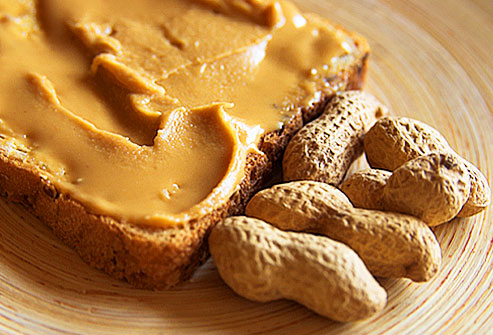<p style="text-align: justify;">Peanut butter us a common food staple for many decades. In its original form, peanut and its oil are healthy enough for our body, providing good fats. However, there are other alternatives, that we may consider, such as almond, pistachio, cashew, macadamia, hazelnut, walnut, sunflower and pecan. Among these alternatives, almond butter is often become a favourite. Almond butter works well for our taste buds, but how does it compare with the regular peanut butter? There are a number of key factors that we should consider when making this comparison. First, we should check the nutritional values of both. Peanut and almond butters roughly have the same amount of calories, fat and carbs. It appears that peanut butter has higher vitamin B3 and K, as well as folate and magnesium. On the other hand, almond butter has more vitamin E, calcium, iron, potassium and antioxidants. They are both good sources of healthy fats and fibers, as well as packed with nutrients. Choosing the best one depends on your nutritional needs and physical conditions.</p>
<p style="text-align: justify;">Although both butters are excellent sources of healthy fats, but they still contain some percentage of bad fat. In general, almond butter contains 25 percent less saturated fat and 50 percent more monounsaturated fat, which is considered as healthy fat. Almond butter in its original state shouldn’t contain any trans fat and if you are worried about high cholesterol intake, almond butter should be a better choice. However, organic peanut butter shouldn’t contain any trans fat. One food trend that we often hear is alkaline and acidic food. The former is good for you while another is bad. High acidic intake is believed to contribute in the development of cancer and other physical diseases. Almonds are known to be more alkaline than peanuts. One factor that determines the buying decision is cost and people will certainly compare the prices between both types of butter. Almond butter is usually more expensive than peanut butter, because it’s not as commercially available. There are fewer producers of almond butter and the less intense competition between them also contributes to higher prices. The price of almond butter can be $5 higher per jar compared to peanut butter.</p>
<p style="text-align: justify;">Almond and peanut butters have their own composition of major nutrients, so the best selection depends on what kinds of nutrients that we need. If we want to have a complete intake of nutrients, there’s nothing wrong about mixing both types of butters. If you are concerned about the intake of acidic food, it is better to choose almond butter, to make your daily diet becomes more alkaline. Whatever butter type you choose, it’s a good idea to read the labels to make sure that there are minimal external ingredients that are added into the products. Popular brand names don’t always guarantee that we get the healthiest ingredients. They may use a number of additives to ensure long shelf life, as well as preserving and enhancing flavours. One common rule is that if the ingredient is unrecognizable and we can’t spell it easily, then it is probably risky to eat.</p>

Peanut Butter Versus Almond Butter: Which One Is Better?
